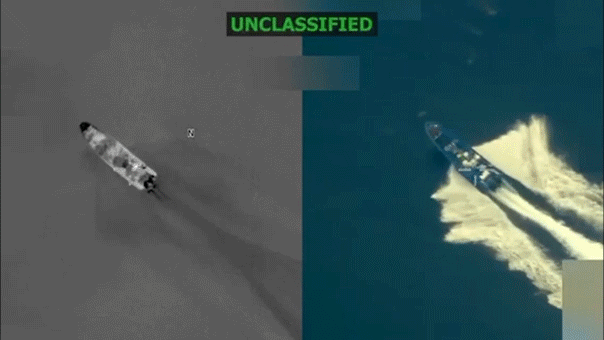Trump’s Bold War Against Cartels: A New Era in American Drug Enforcement
In an unprecedented shift in America’s approach to combating drug trafficking, President Donald Trump has declared war on cartels, threatening to “blow you out of existence” as his administration intensifies efforts to stop the flow of narcotics into the United States. This aggressive stance materialized on September 30 when the White House informed lawmakers that the U.S. is now engaged in a “non-international armed conflict” with drug smugglers. The declaration hasn’t been merely rhetorical—it’s been backed by action, with four lethal strikes against suspected drug boats in the Caribbean since September. Department of War Secretary Pete Hegseth announced a new counter-narcotics Joint Task Force in the Southern Command area, emphasizing their mission to “crush the cartels, stop the poison, and keep America safe.” The message to drug traffickers is unmistakably clear: approach American shores with drugs, and you’ll be stopped with force.
This dramatic escalation signals what experts consider a fundamental transformation in America’s decades-long war on drugs. Geoff Ramsey, a senior fellow at the Atlantic Council, believes Trump is “taking the US war on drugs in Latin America to the next level” by deploying military assets against cartels in ways previous administrations avoided. The strategy may soon extend beyond international waters to targets within Venezuela itself, potentially including drug shipments or flights that frequently depart from hidden airfields near the Colombian border. The implications for those operating in these trafficking networks are severe—as Ramsey colorfully notes, “It’s a bad time to be posted in a guerrilla camp on the Colombian border or operating a Tren de Aragua safe house along the Caribbean trafficking route.” However, striking within Venezuelan territory presents significant challenges, as it would require dismantling Venezuela’s air defense systems and risk open conflict with Venezuelan military forces—an escalation the U.S. appears to be avoiding for now, as evidenced by its restraint when Venezuelan F-16s recently flew over a U.S. destroyer without provoking an American response.
Despite these complications, President Trump hasn’t ruled out conducting strikes within Venezuela’s borders. During an address to military leaders at Quantico on September 30, he indicated his administration would “look very seriously at cartels coming by land,” suggesting potential expansion of operations beyond maritime interdiction. To date, the administration has primarily relied on naval forces, significantly strengthening its presence in the Caribbean. Beginning in August, Trump authorized the deployment of several U.S. Navy guided missile destroyers to support counter-narcotics efforts in the region. According to Bryan Clark, director of the Hudson Institute’s Center for Defense Concepts and Technology, these deployments are expected to continue for “months or more than a year,” with rotations of vessels to maintain operational capability. This sustained naval presence represents a tangible commitment to the administration’s aggressive anti-cartel strategy.
Despite the dramatic nature of these military actions, some experts question their ultimate impact on drug flows into the United States, particularly regarding fentanyl—America’s most pressing drug crisis. Nathan Jones, a scholar in drug policy at Rice University’s Baker Institute, believes these Caribbean strikes are unlikely to significantly affect fentanyl trafficking since this deadly synthetic opioid follows a different route: precursor chemicals originate in China, are processed in Mexican labs, and then transported northward through land routes that bypass the Caribbean entirely. While Jones acknowledges these operations might make transnational criminal organizations “a little scared,” he predicts traffickers will simply adapt by shifting their emphasis from maritime routes in the Caribbean to land or aerial alternatives. This adaptability has been a persistent challenge in America’s long-standing efforts to combat drug trafficking.
The legality of these military strikes has sparked serious debate in Congress, highlighting tensions between presidential war powers and legislative authority. Democratic Senators Adam Schiff and Tim Kaine introduced a war powers resolution in September seeking to block U.S. forces from engaging in “hostilities” against certain non-state organizations. Schiff argued the strikes were “plainly unconstitutional,” stating that “the fact that the administration claims to have a list and has put organizations on a list does not somehow empower the administration to usurp Congress’s power of declaring war.” The measure ultimately failed in the Senate by a 51-48 margin, though it did attract bipartisan support with Republicans Rand Paul and Lisa Murkowski joining Democrats in backing the resolution. This congressional pushback represents significant concerns about executive authority in conducting what effectively amounts to military operations without formal congressional authorization.
Despite these legal challenges, many Republicans have defended Trump’s actions as necessary and legitimate. Senate Foreign Relations Committee Chairman Jim Risch asserted that Trump’s strikes fall well within his presidential authority, calling the proposed resolution “unreasonable.” In Risch’s view, when the president “sees an attack like this coming—an attack of drugs or explosives or anything else that’s going to kill Americans—he not only has the authority to do something about it, he has the duty to do something about it.” This perspective frames the anti-cartel strikes not as acts of war requiring congressional approval, but as defensive measures protecting American lives from the deadly impact of drug trafficking. The debate encapsulates a fundamental tension in American governance: balancing the president’s responsibility to protect citizens against the constitutional requirement for congressional approval of military actions. As the Trump administration continues its aggressive campaign against drug cartels, this constitutional question remains unresolved, even as military operations intensify in the Caribbean and potentially beyond.













